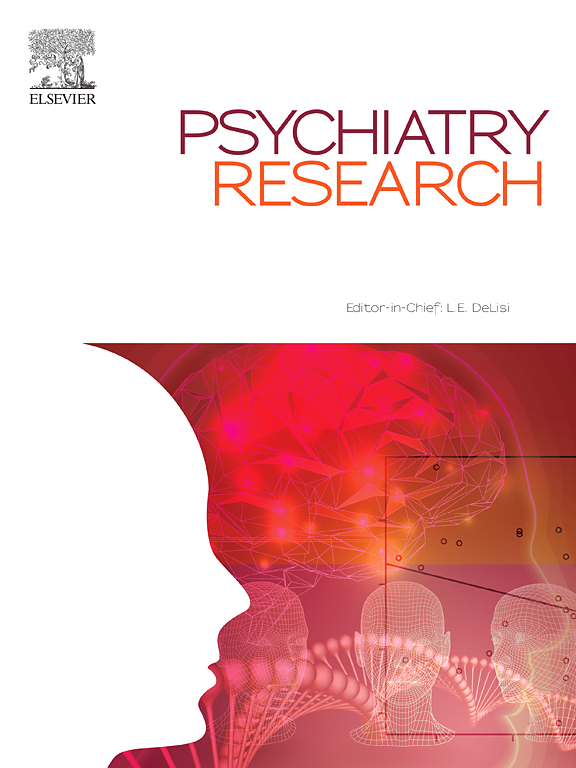Emotional memory biases in patients with bipolar depression
IF 4.2
2区 医学
Q1 PSYCHIATRY
引用次数: 0
Abstract
Emotional memory biases, defined as the tendency to remember emotionally valenced information more accurately than healthy controls (HCs), may contribute to the onset and persistence of bipolar depression (BD). However, specific investigations of these biases are limited. This study sought to examine emotional memory biases by comparing patients with BD to HCs and exploring potential differences between bipolar I depression (BD-I) and bipolar II depression (BD-II). A recognition task was designed to assess recognition memory for previously presented stimuli. Participants (14, 58, and 73 for BD-I, BD-II, and HCs, respectively) were shown words with positive or negative valence and were asked to identify whether each word had been presented earlier during a self-reference effect task, where they chose the more personally relevant word from a pair of positive and negative words. Mixed-model analyses of covariance compared the BD and HC groups, adjusting for years of education and medication use, and assessed BD subtypes, adjusting for age and medication use. Results indicated that patients with BD recognized negative words (“hits”) more accurately and were more likely to incorrectly identify non-presented negative words as presented (“false alarms”) compared to HCs, reflecting a pronounced bias toward negative stimuli. No significant differences were observed between the BD-I and BD-II subtypes. These findings suggest that emotional memory biases may be a key feature of BD, potentially contributing to the persistence of depressive episodes.
求助全文
约1分钟内获得全文
求助全文
来源期刊

Psychiatry Research
医学-精神病学
CiteScore
17.40
自引率
1.80%
发文量
527
审稿时长
57 days
期刊介绍:
Psychiatry Research offers swift publication of comprehensive research reports and reviews within the field of psychiatry.
The scope of the journal encompasses:
Biochemical, physiological, neuroanatomic, genetic, neurocognitive, and psychosocial determinants of psychiatric disorders.
Diagnostic assessments of psychiatric disorders.
Evaluations that pursue hypotheses about the cause or causes of psychiatric diseases.
Evaluations of pharmacologic and non-pharmacologic psychiatric treatments.
Basic neuroscience studies related to animal or neurochemical models for psychiatric disorders.
Methodological advances, such as instrumentation, clinical scales, and assays directly applicable to psychiatric research.
 求助内容:
求助内容: 应助结果提醒方式:
应助结果提醒方式:


